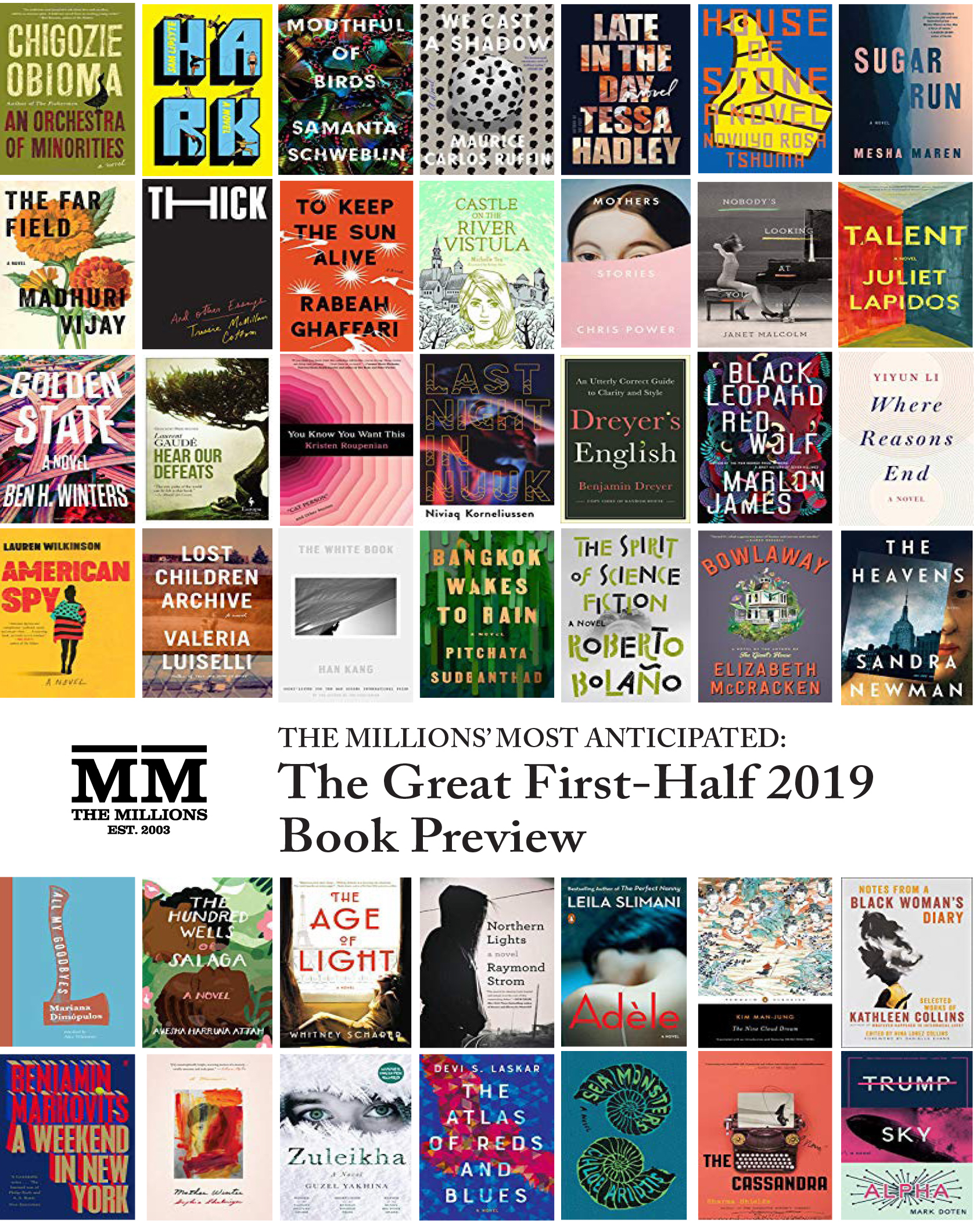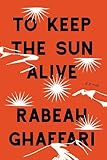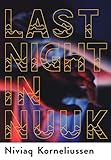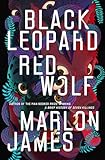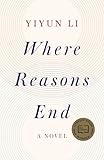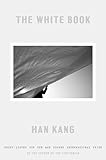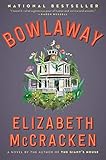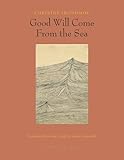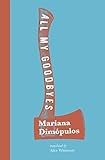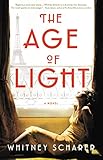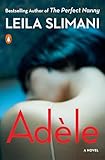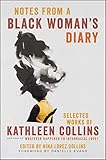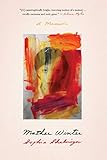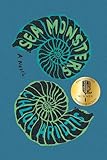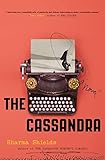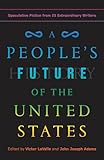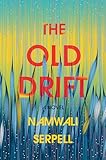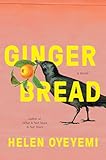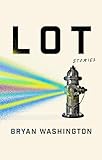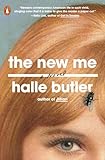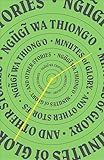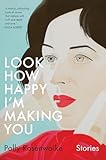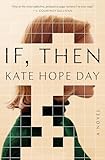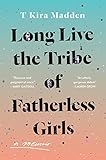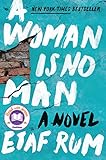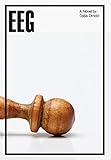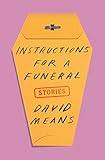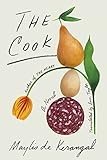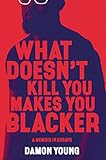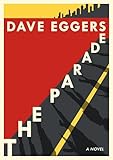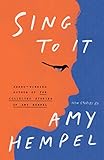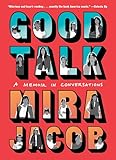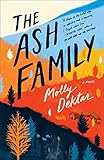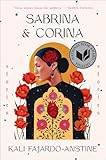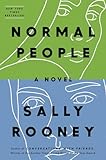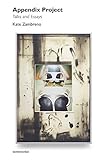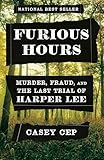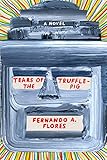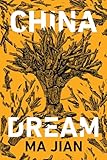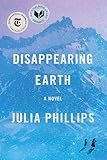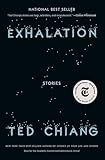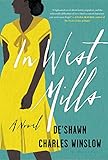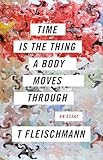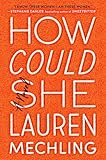As you learned last week, The Millions is entering into a new, wonderful epoch, a transition that means fretting over the Preview is no longer my purview. This is one of the things I’ll miss about editing The Millions: it has been a true, somewhat mind-boggling privilege to have an early look at what’s on the horizon for literature. But it’s also a tremendous relief. The worst thing about the Preview is that a list can never be comprehensive—we always miss something, one of the reasons that we established the monthly previews, which will continue—and as a writer I know that lists are hell, a font of anxiety and sorrow for other writers.
That said, the technical term for this particular January-through-June list is Huge Giant Monster. Clocking in at more than 120 books, it is quite simply, too long. (If I were still the editor and he were still the publisher, beloved site founder C. Max Magee would be absolutely furious with me.) But this over-abundance means blessings for all of us as readers. The first half of 2019 brings new books from Millions contributing editor Chigozie Obioma, and luminaries like Helen Oyeyemi, Sam Lipsyte, Marlon James, Yiyun Li, and Ann Beattie. There are mesmerizing debuts. Searing works of memoir and essay. There’s even a new book of English usage, fodder for your future fights about punctuation.
Let’s celebrate very good things, and a lot of them, where we find them. The Millions, its writers, and its readers have been some of my very good things. I’m so grateful for the time I’ve spent as editor, and with all of you. Happy new year, and happy reading. I’ll be seeing you around.
-Lydia Kiesling
January
An Orchestra of Minorities by Chigozie Obioma: Millions Contributing Editor Obioma’s debut novel, The Fishermen, is a merciless beauty and one of my favorites of 2015. I wasn’t alone in this feeling: The Fishermen garnered universal critical acclaim with its recasting of biblical and African mythos to create a modern Nigerian tragedy. His second novel, An Orchestra of Minorities, is a contemporary retelling of Homer’s Odyssey blended with Igbo folklore that has received similar glowing notice so far. As Booklist says in a starred review, An Orchesta of Minorities is “magnificently multilayered…Obioma’s sophomore title proves to be an Odyssean achievement.” (Adam P.)
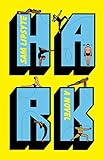 Hark by Sam Lipsyte: In Lipsyte’s latest novel since The Ask, we meet Hark Morner, an accidental guru whose philosophies are a mix of mindfulness, fake history, and something called “mental archery.” Fellow comedic genius Paul Beatty calls it “wonderfully moving and beautifully musical.” While Kirkus thought it too sour and misanthropic, Publishers Weekly deemed it “a searing exploration of desperate hopes.” Their reviewer adds, “Lipsyte’s potent blend of spot-on satire, menacing bit players, and deadpan humor will delight readers.” (Edan)
Hark by Sam Lipsyte: In Lipsyte’s latest novel since The Ask, we meet Hark Morner, an accidental guru whose philosophies are a mix of mindfulness, fake history, and something called “mental archery.” Fellow comedic genius Paul Beatty calls it “wonderfully moving and beautifully musical.” While Kirkus thought it too sour and misanthropic, Publishers Weekly deemed it “a searing exploration of desperate hopes.” Their reviewer adds, “Lipsyte’s potent blend of spot-on satire, menacing bit players, and deadpan humor will delight readers.” (Edan)
Mouthful of Birds by Samanta Schweblin: Schweblin’s Fever Dream, published in America in 2017 and shortlisted for the Booker Prize, was, excepting Fire and Fury, perhaps the most frightening book of the last two years. Schweblin has a special knack for blending reality and eerie unreality, and she provides readers more nightmare fuel with Mouthful of Birds, a collection of 20 short stories that has drawn advance praise describing it as “surreal,” “visceral,” “addictive,” and “disturbing.” If you like to be unsettled, settle in. (Adam P.)
We Cast a Shadow by Maurice Carlos Ruffin: VQR columnist and essayist Ruffin now publishes his debut novel, a near-futurist social satire about people in a southern city undergoing “whitening” treatments to survive in a society governed by white supremacy. In a starred review, Publishers Weekly calls this a “singular and unforgettable work of political art.” For Ruffin’s nonfiction, read his excellent essay on gentrification and food in New Orleans for Southern Foodways or his work for VQR. (Lydia)
Late in the Day by Tessa Hadley: It took Hadley 46 years to publish her first novel, 2002’s Accidents in the Home. In the 17 years since, she has made up for lost time, publishing three story collections and six novels, including Late in the Day, about two middle-aged married couples coping with the death of one member of their tight-knit quartet. “Hadley is a writer of the first order,” says Publishers Weekly, “and this novel gives her the opportunity to explore, with profound incisiveness and depth, the inevitable changes inherent to long-lasting marriages.” (Michael)
House of Stone by Novuyo Rosa Tshuma: House of Stone is a debut novel by Zimbabwean author Tshuma. The book opens with the narrative of a 24-year-old tenant Zamani, who works to make his landlord and landlady love him more than they loved their son, Bukhosi, who went missing during a protest in Bulawayo, Zimbabwe. In his book review for The Guardian, Helon Habila praises Tshuma as a “wily writer,” and says that her book is full of surprises. House of Stone not only takes unexpected turns in terms of plot lines, but also bears no single boring sentence. It makes the violent political scenes and circumstance-driven characters vivid on the page and thus renders Zimbabwean history in a very powerful and yet believable way. (Jianan)
Sugar Run by Mesha Maren: In what Publishers Weekly describes as an “impressive debut replete with luminous prose,” Maren’s Sugar Run tells the story of Jodi McCarty, unexpectedly released from prison after 18 years inside. McCarty meets and quickly falls in love with Miranda, a troubled young mother, and together they set out towards what they hope will be a better life. Set within the insular confines of rural West Virginia, Sugar Run is a searing, gritty novel about escape—the longing for it, the impossibility of it—and it announces Maren as a formidable talent to watch. (Adam P.)
The Far Field by Madhuri Vijay: Searching for answers about her late mother, Shalini, a 30-year-old privileged woman, travels from Bangalore to Kashmir in search of a mysterious man from her past. In the remote village, political and military tensions rise and threaten the new community she’s immersed herself in. Publishers Weekly, in starred review, wrote: “Vijay’s stunning debut novel expertly intertwines the personal and political to pick apart the history of Jammu and Kashmir.” (Carolyn)
Thick by Tressie McMillan Cottom: A scholar who has earned acclaim both within her discipline of Sociology and outside of the academy for her book Lower Ed, on the predatory for-profit college industry, Cottom has a huge following that looks to her for her trenchant analyses of American society. Now she publishes a collection of essays on race, gender, money, work, and class that combines scholarship and lived experience with Cottom’s characteristic rigor and style. (Lydia)
To Keep the Sun Alive by Rebeah Ghaffari: A story of the family of a retired judge in Iran just before the Revolution, where the events that roil the family are set against, and affected by, the events that will roil the nation. Kirkus calls this “an evocative and deeply felt narrative portrait.” (Lydia)
Castle on the River Vistula by Michelle Tea: Protagonist Sophie Swankowski’s journeys in Tea’s Young Adult Chelsea Trilogy will come to an end in Castle on the River Vistula, when the 13-year-old magician journeys from her home in Massachusetts to Poland, the birthplace of her friend “the gruff, filthy mermaid Syrena.” Tea is an author familiar with magic, having penned Modern Tarot: Connecting with Your Higher Self through the Wisdom of the Cards, and she promises to bring a similar sense of the supernatural in Sophie’s concluding adventures. (Ed)
Mothers by Chris Power: Smooth and direct prose makes Power’s debut story collection an entrancing read. In “Portals,” the narrator meets Monica, a dancer from Spain, and her boyfriend. “We drank a lot and told stories.” A year later, Monica messages the narrator and says she wants to meet up—and is newly single. Power pushes through the narration, as if we have been confidently shuffled into a room to capture the most illuminating moments of a relationship. Lying on the grass together, Monica stares at the narrator as she rolls onto her back. “It was an invitation, but I hesitated. This was exactly what I had come for, but now the tiny space between us felt unbridgeable.” Mothers is full of those sharp moments of our lives: the pulse of joy, the sting of regret. (Nick R.)
Nobody’s Looking At You by Janet Malcolm: This essay collection is a worthy follow-up to Malcolm’s Forty-One False Starts, which was a finalist for the National Book Critics Circle Award for Criticism. In this new collection, readers can catch up on the masterful profiles of Eileen Fisher, Rachel Maddow, and Yuju Wang they may have missed in The New Yorker, as well as book reviews and literary criticism. (Hannah)
Talent by Juliet Lapidos: This debut is a literary mystery/campus novel set into motion by a graduate student, Anna Brisker, who can’t finish her dissertation on “an intellectual history of inspiration.” When Anna crosses paths with the niece of a deceased writer famous for his writer’s block, she’s thrilled to discover that the eminent writer has left behind unfinished work. Anna thinks she’s found the perfect case study for her thesis, but soon learns that the niece’s motives aren’t what they seem and that the author’s papers aren’t so easily interpreted. (Hannah)
Golden State by Ben Winters: With The Last Policemen Trilogy and Underground Airlines, Winters has made a career of blending speculative fiction with detective noir. His next in that vein is Golden State, a novel set in California in the not-too-distant future—an independent state where untruth is the greatest offense. Laszlo Ratesic works as a Speculator, a state force with special abilities to sense lies. (Janet)
Hear Our Defeats by Laurent Gaudé: Prix Goncourt winning French playwright Gaudé’s philosophical meditation on human foibles and violence makes its English language debut. Bracketed around the romance of a French intelligence officer and an Iraqi archeologist, the former in pursuit of an American narco-trafficker and the latter attempting to preserve sites from ISIS, Hear Our Defeats ultimately ranges across history, including interludes from Ulysses S. Grant pushing into Virginia and Hannibal’s invasion of Rome. (Ed)
You Know You Want This by Kristen Roupenian: The short story collection whose centerpiece is “Cat Person,” the viral sensation that had millions of people identifying with/fearing/decrying/loving/debating a work of short fiction last year. (Lydia)
Last Night in Nuuk by Niviaq Korneliussen: This writer from Greenland was 22 when she won a prestigious writing prize, and her subsequent debut novel took the country by storm. Now available for U.S. readers, a profile in The New Yorker calls the novel “a work of a strikingly modern sensibility—a stream-of-consciousness story of five queer protagonists confronting their identities in twenty-first-century Greenlandic culture.” (Lydia)
Dreyer’s English by Benjamin Dreyer: A guide to usage by a long-time Random House copyeditor that seems destined to become a classic (please don’t copyedit this sentence). George Saunders calls it “A mind-blower—sure to jumpstart any writing project, just by exposing you, the writer, to Dreyer’s astonishing level of sentence-awareness.” (Lydia)
February
Black Leopard, Red Wolf by Marlon James: Following up his Man Booker Prize for A Brief History of Seven Killings, James has written the first book in what is to be an epic trilogy that is part Lord of the Rings, part Game of Thrones, and part Black Panther. In this first volume, a band of mercenaries—made up of a witch, a giant, a buffalo, a shape-shifter, and a bounty hunter who can track anyone by smell (his name is Tracker)—are hired to find a boy, missing for three years, who holds special interest for the king. (Janet)
Where Reasons End by Yiyun Li: Where Reasons End is the latest novel by the critically acclaimed author of Dear Friend, from My Life I Write to You in Your Life. Li creates this fictional space where a mother can have an eternal, carefree conversation with her child Nikolai, who commits suicide at the age of 16. Suffused with intimacy and deepest sorrows, the book captures the affections and complexity of parenthood in a way that has never been portrayed before. (Jianan)
The Collected Schizophrenias by Esmé Weijun Wang: Wang writes brilliantly and beautifully about lives lived with mental illness. Her first novel, The Border of Paradise, traces a family through generations, revealing the ways each becomes inheritors of the previous generation’s isolation and depression. In The Collected Schizophrenias, her first essay collection (for which she was awarded the Whiting Award and Greywolf Nonfiction Prize), Wang draws from her experience as both patient and speaker/advocate navigating the vagaries of the mental healthcare system while also shedding light on the ways it robs patients of autonomy. What’s most astonishing is how Wang writes with such intelligence, insight, and care about her own struggle to remain functional while living with schizoaffective disorder. (Anne)
American Spy by Lauren Wilkinson: It’s the mid-1980s and American Cold War adventurism has set its sights on the emerging west African republic of Burkina Faso. There’s only one problem: the agent sent to help swing things America’s way is having second, and third, thoughts. The result is an engaging and intelligent stew of espionage and post-colonial political agency, but more important, a confessional account examining our baser selves and our unscratchable itch to fight wars that cannot be won. (Il’ja)
Lost Children Archive by Valeria Luiselli: The two-time finalist for the National Book Critic’s Circle Award has written a road novel for America in the 21st century. In the book, a family of four set out from their home in New York to visit a place in Arizona called Apacheria, a.k.a. the region once inhabited by the Apache tribe. On their way down south, the family reveals their own set of long-simmering conflicts, while the radio gives updates on an “immigration crisis” at the border. (Thom)
The White Book by Han Kang (translated by Deborah Smith): In 2016, Kang’s stunning novel The Vegetarian won the Man Booker Prize; in 2018, she drew Man Booker attention again with her autobiographical work The White Book. There are loose connections between the two—both concern sisters, for one, and loss, and both feature Han’s beautiful, spare prose—but The White Book is less a conventional story and more like a meditation in fragments. Written about and to the narrator’s older sister, who died as a newborn, and about the white objects of grief, Han’s work has been likened to “a secular prayer book,” one that “investigates the fragility, beauty and strangeness of life.” (Kaulie)
Bangkok Wakes to Rainby Pitchaya Sudbanthad: NYFA Fellow Sudbanthad’s debut novel, Bangkok Wakes to Rain, has already been hailed as “important, ambitious, and accomplished,” by Mohsin Hamid, and a book that “brilliantly sounds the resonant pulse of the city in a wise and far-reaching meditation on home,” by Claire Vaye Watkins. This polyphonic novel follows myriad characters—from a self-exiled jazz pianist to a former student revolutionary—through the thresholds of Bangkok’s past, present, and future. Sudbanthad, who splits his time between Bangkok and New York, says he wrote the novel by letting his mind wander the city of his birth: “I arrived at the site of a house that, to me, became a theatrical stage where characters…entered and left; I followed them, like a clandestine voyeur, across time and worlds, old and new.” (Anne)
The Source of Self-Regard by Toni Morrison: A new collection of nonfiction–speeches, essays, criticism, and reflections–from the Nobel-prize winning Morrison. Publishers Weekly says “”Some superb pieces headline this rich collection…Prescient and highly relevant to the present political moment…” (Lydia)
Spirit of Science Fiction by Roberto Bolano: Spirit of Science Fiction is a novel by the critically acclaimed author of 2666, Bolano, translated by Natasha Wimmer. Apparently it is a tale about two young poets aspiring to find their positions in the literary world. But the literary world in Bolano’s sense is also a world of revolution, fame, ambition, and more so of sex and love. Like Bolano’s previous fiction, Spirit of Science Fiction is a Byzantine maze of strange and beautiful life adventures that never fails to provide readers with intellectual and emotional satisfaction. (Jianan)
Bowlaway by Elizabeth McCracken: It’s hard to believe it’s
been 20 years since McCracken published her first novel, The Giant’s House,
perhaps because, since then, she’s given us two brilliant short story
collections and one of the most powerful memoirs in recent memory. Her fans
will no doubt rejoice at the arrival of this second novel, which follows three
generations of a family in a small New England town. Bowlaway refers to a
candlestick bowling alley that Publishers Weekly, in its starred review, calls
“almost a character, reflecting the vicissitudes of history that determine
prosperity or its opposite.” In its own starred review, Kirkus praises
McCracken’s “psychological acuity.” (Edan)
Good Will Come from the Sea by Christos Ikonomou (translated by Karen Emmerich): In the same way that Greece was supposedly the primogeniture of Western civilization, the modern nation has prefigured over the last decade in much of what defines our current era. Economic hardship, austerity, and the rise of political radicalism are all manifest in the Greece explored by Ikonomou in his short story collection Good Will Come from the Sea. These four interlocked stories explore modern Greece as it exists on the frontlines of both the refugee crisis and scarcity economics. Ikonomou’s stories aren’t about the Greece of chauvinistic nostalgia; as he told an interviewer in 2015 his characters “don’t love the Acropolis; they don’t know what it means,” for it’s superficial “to feel just pride;” rather, the author wishes to “write about the human condition,” and so he does. (Ed)
The Heavens by Sandra Newman: This novel connects an
alternate universe New York in the year 2000 with Elizabethan England, through
a woman who believes she has one foot in each era. A fascinating-sounding
romance about art, illness, destiny, and history. In a starred review, Kirkus
calls this “a complex, unmissable work from a writer who deserves wide
acclaim.” (Lydia)
All My Goodbyes by Mariana Dimópulos (translated by Alice Whitmore): Argentinian writer Dimópulos’s first book in English is a novel that focuses on a narrator who has been traveling for a decade. The narrator reflects on her habit of leaving family, countries, and lovers. And when she decides to commit to a relationship, her lover is murdered, adding a haunting and sorrowful quality to her interiority. Julie Buntin writes, “The scattered pieces of her story—each of them wonderfully distinct, laced with insight, violence, and sensuality—cohere into a profound evocation of restlessness, of the sublime and imprisoning act of letting go.” (Zoë)
The Hundred Wells of Salaga by Ayesha Harruna Attah: An account of 19th-century Ghana, the novel follows two
young girls, Wurche and Aminah, who live in the titular city which is a notorious
center preparing people for sale as slaves to Europeans and Americans. Attah’s novel
gives a texture and specificity to the anonymous tales of the Middle Passage,
with critic Nadifa Mohamad writing in The Guardian that “One of the strengths
of the novel is that it complicates the idea of what ‘African history’ is.”
(Ed)
The Age of Light by Whitney Scharer: This much sought-after
debut, which was the object of a bidding war, is based on the life of Lee
Miller, a Vogue model turned photographer who decided she would rather “take a
picture than be one.” The novel focuses on Miller’s tumultuous romance with
photographer Man Ray in early 1930s Paris, as Miller made the transition from
muse to artist. Early reviews suggests that the novel more than lives up to its
promise, with readers extolling its complicated heroine and page-turning
pacing. (Hannah)
Northern Lights by Raymond Strom: A story about the struggle for survival in a small town in Minnesota, the novel follows the androgynous teen run-away Shane
Stephenson who is searching in Holm, Minn., for the mother who abandoned
him. Shane finds belonging among the adrift and addicted of the crumbling town,
but he also finds bigotry and hatred. (Ed)
Adèle by Leila Slimani (translated by Sam Taylor): Slimani, who won the Prix Goncourt
in 2016, became famous after publishing Dans le jardin de l’ogre, which is now
being translated and published in English as Adèle. The French-Moroccon
novelist’s debut tells the story of a titular heroine whose burgeoning sex
addiction threatens to ruin her life. Upon winning an award in Morocco for the
novel, Slimani said its primary focus is her character’s “loss of self.” (Thom)
The Nine Cloud Dream by Kim Man-Jung (translated by Heinz Insu Fenkl): Known as “one of the most beloved masterpieces in Korean literature,” The Nine Cloud Dream (also known as Kuunmong) takes readers on a journey reminiscent of Dante’s Inferno combining aspects of Buddhism, Taoism, and indigenous Korean shamanic religions in a 17th-century tale, which, rare in Buddhist texts, includes strong representation of women. Accompanied by gorgeous illustrations and an introduction, notations, and translation done by one of my favorite translators, Heinz Insu Fenkl. Akin to Herman Hesse’s Siddhartha, an intriguing read for readers interested in Buddhism, Korea, and mindfulness. (Marie Myung-Ok)
Notes From a Black Woman’s Diary by Kathleen Collins: Not
long after completing her first feature film, Losing Ground, in 1982, Collins died from breast cancer at age 46. In 2017, her short story collection
about the lives and loves of black Americans in the 1960s, Whatever Happened to
Interracial Love?, was published to ringing critical acclaim. Now comes Notes
From a Black Woman’s Diary, which is much more than the title suggests. In
addition to autobiographical material, the book includes fiction, plays,
excerpts from an unfinished novel, and the screenplay of Losing Ground, with
extensive directorial notes. This book is sure to burnish Collins’s
flourishing posthumous reputation. (Bill)
Hard to Love by Briallen Hopper: A collection of essays on the
relationships between family members and friends, with background on the author’s
childhood in an evangelical family. The collection garnered a starred
review from Kirkus and praise from essayist Leslie Jamison, who calls is “extraordinary.”
(Lydia)
A Weekend in New York by Benjamin Markovits: Markovits is a
versatile writer, his work ranging from a fictional trilogy about Lord Byron to
an autobiographical novel about basketball. He returns to athletics in A
Weekend in New York, where Paul Essinger is a mid-level tennis player and
1,200-1 shot to win the U.S. Open. Essinger may be alone on the court, but he has
plenty of company at his Manhattan home when his parents visit during the
tournament. Upon its British publication, The Guardian praised the “light,
limber confidence” with which Markowits handles sporting knowledge and his
acute treatment of the family tensions amid “first-world also-rans.” (Matt)
Mother Winter by Sophia Shalmiyev: This debut is the memoir
of a young woman’s life shaped by unrelenting existential terror. The story is
told in fragmentary vignettes beginning with Shalmiyev’s fraught emigration as
a young child from St. Petersburg, Russia to the United States, leaving behind
the mother who had abandoned her. It closes with her resolve to find her
estranged mother again. (Il’ja)
Zuleikha by Guzel Yakhina (translated by Lisa C. Hayden): It is 1930 in the Soviet Union
and Josef Stalin’s de-kulakization program has found its pace. Among the
victims is a young Tatar family: the husband murdered, the wife exiled to
Siberia. This is her story of survival and eventual triumph. Winner of the 2015
Russian Booker prize, this debut novel draws heavily on the first-person
account of the author’s grandmother, a Gulag survivor. (Il’ja)
The Atlas of Red and Blues by Devi Laskar: This novel’s
inciting incident is a police raid on the home the daughter of Bengali
immigrants, told from her perspective as she lies bleeding and running through
the events, experiences, and memories that have led her to this moment. Kiese
Laymon calls Laskar’s book “as narratively beautiful as it is
brutal…I’ve never read a novel that does nearly as much in so few pages.
Laskar has changed how we will all write about state-sanctioned terror in this
nation.” (Lydia)
Sea Monsters by Chloe Aridjis: Imagine if Malcom Lowry’s
hallucinogenic masterpiece Under the Volcano, about the drunken perambulations
of a British consul in a provincial Mexican village on Dia de Los Muertos, had
been written by a native of that country? Such could describe Aridjis’s
novel Sea Monsters, which follows the 17-year-old Luisa and her acquaintance
Tomás as they leave Mexico City in search of a troupe of Ukrainian dwarves who
have defected from a Soviet circus. Luisa eventually settles in Oaxaca where
Luisa takes sojourns to the “Beach of the Dead” in search of anyone who “no
matter what” will “remain a mystery.” (Ed)
Elsewhere, Home by Leila Aboulela: The 13 stories in
Aboulela’s new collection are set in locales as distant as Khartoum and London,
yet throughout they explore the universal feelings of the migrant experience:
displacement, longing, but also the incandescent hope of creating a different
life. (Nick M.)
The Cassandra by Sharma Shields: Mildred Groves, The
Cassandra’s titular prophetess, sometimes sees flashes of the future. She is
also working at the top-secret Hanford Research Center in the 1940s, where the
seeds of atomic weapons are sown and where her visions are growing more
horrifying—and going ignored at best, punished at worst. Balancing thorough
research and mythic lyricism, Shields’s novel is a timely warning of what
happens when warnings go unheeded. (Kaulie)
Tonic and Balm by Stephanie Allen: A new title from Shade
Mountain Press, Tonic and Balm takes place in 1919, it’s setting a traveling
medicine show, complete with “sideshows,” sword-swallowers, and
dubious remedies. The book explores this show’s peregrinations against the
backdrop of poverty and racist violence in rural Pennsylvania. Allen’s first
book, A Place Between Stations: Stories, was a finalist for the Hurston-Wright
Legacy Award. (Lydia)
Death Is Hard Work by Khaled Khalifa (translated by Leri Price): “Most of my friends
have left the country and are now refugees,” Khalifa wrote in a recent
essay. Yet he remains in Syria, a place where “those of us who have stayed are
dying one by one, family by family, so much so that the idea of an empty city
could become a reality.” If literature is a momentary stay against confusion,
then Khalifa’s novels are ardent stays against destruction and decay—and Death
Is Hard Work continues this tradition. The novel begins with the dying hours of
Abdel Latif al-Salim, who looks his son Bolbol “straight in the eye” in order
to give his dying wish: to be buried several hours away, next to his sister.
The novel becomes a frenetic attempt for his sons to honor this wish and reach
Anabiya. “It’s only natural for a man,” Khalifa writes, “to be weak and make
impossible requests.” And yet he shows this is what makes us human. (Nick R.)
Aerialists by Mark Mayer. For those gutted by the news of
Ringling Bros. and Barnum & Bailey Circus closing in 2017, Mayer’s debut
collection supplies a revivifying dose of that carney spirit. The stories
feature circus-inspired characters—most terrifyingly a murderous clown-cum-real
estate agent—in surrealist situations. We read about a bearded woman
revolutionist, a TV personality strongwoman, and, in the grand tradition of pet
burial writing that reached its acme with Evelyn Waugh’s The Loved One, the
funeral of a former circus elephant. Publishers Weekly called it a “high-wire
debut [that] exposes the weirdness of everyday life.” (Matt)
Friend of My Youth by Amit Chaudhuri: Published for the
first time in the U.S., this is the seventh novel by the renowned writer, a
work of autofiction about a novelist named Amit Chaudhuri revisiting his
childhood in Mumbai. Publishers Weekly says, “in this cogent and
introspective novel, Chaudhuri movingly portrays how other people can allow
individuals to connect their present and past.” (Lydia)
A People’s Future of the United States edited by Victor LaValle and John Joseph Adams: An anthology of 25 speculative stories from a range of powerful storytellers, among them Maria Dahvana Headley, Daniel José Older, and Alice Sola Kim. LaValle and Adams sought stories that imagine a derailed future—tales that take our fractured present and make the ruptures even further. Editor LaValle, an accomplished speculative fiction writer himself (most recently The Changeling, and my personal favorite, the hilarious and booming Big Machine), is the perfect writer to corral these stories. LaValle has said “one of the great things about horror and speculative fiction is that you are throwing people into really outsized, dramatic situations a lot…[including] racism and sexism and classism, biases against the mentally ill”—the perfect description for this dynamic collection. (Nick R.)
Trump Sky Alpha by Mark Doten: Doten’s Trump Sky Alpha,
is the first and last Trump novel I’ll ever want to read. Doten started writing
the novel in 2015, when our current predicament, I mean, president, was a mere
and unfathomable possibility. Doten’s President Trump brings about the nuclear
apocalypse, and in its aftermath a journalist takes an assignment to research
Internet humor at the end of the world. The result? An “unconventional and
darkly satirical mix of memes, Twitter jokes, Q&As, and tightly written
stream-of-consciousness passages,” according to Booklist. From this feat, says
Joshua Cohen,“Mark Doten emerges as the shadow president of our benighted
generation of American literature.” (Anne)
Nothing but the Night by John Williams: The John Williams of
Stoner fame revival continues with the reissue of his first novel by NYRB,
first published in 1948, a story dealing with mental illness and trauma with
echoes of Greek tragedy. (Lydia)
Famous Children and Famished Adults by Evelyn Hampton:
“[Evelyn] Hampton’s stunned sentences will remind you, because you have
forgotten, how piercingly disregulating life is,” writes Stacey Levine of
Hampton’s debut story collection Discomfort, published by Ellipsis Press. I
first encountered Hampton’s fictions through her novella, Madam, a story of a
schoolteacher and her pupils at an academy, where memory is a vehicle and so
much seems a metaphor and language seems to turn in on itself. Hampton’s
forthcoming story collection Famous Children and Famished Adults won FC2’s
Ronald Sukenick Innovative Fiction Prize, and continues with the quixotic. In
this collection, Noy Holland says, “the exotic and toxic intermingle.” (Anne)
March
The Old Drift by Namwali Serpell: Described as the “Great Zambian Novel you didn’t know you were waiting for,” this debut novel, from the winner of the 2015 Caine Prize for African writing, tells the story of three Zambian families—black, white, and brown—caught in a centuries-long cycle of retribution, romance, and political change. Serpell asks, “How do you live a life or forge a politics that can skirt the dual pitfalls of fixity (authoritarianism) and freedom (neoliberalism)? And what happens if you treat error not as something to avoid but as the very basis for human creativity and community?” Recipient of a starred review from Kirkus and advance praise from Carmen Maria Machado, Alice Sebold, and Garth Greenwell, The Old Drift is already well positioned to become the Next Big Thing of 2019. (Jacqueline)
Gingerbread by Helen Oyeyemi: Oyeyemi became a critical
darling in 2014 with Boy, Snow, Bird, a retelling of “Snow White.” She takes us
back into fairy tale world with Gingerbread, the story of mother and daughter,
Harriet and Perdita Lee, and their family’s famous, perhaps…magical,
gingerbread recipe. Along with Harriet’s childhood friend Gretel, the Lees
endure family, work, and money drama all for the sake of that crunchy spice.
(Janet)
The Reign of the Kingfisher by TJ Martinson: Martinson’s debut novel is set in a Chicago that used to have a superhero. It’s
one of those books that plays with genre in an interesting way: the prologue
reads like a graphic novel, and the entire book reads like literary detective
fiction. With a superhero in it. Back in the 1980s, a mysterious and inhumanly
strong man known as the Kingfisher watched over the streets, until his
mutilated body was recovered from the river. In his absence, crime once again
began to rise. But did the Kingfisher really die? Or did he fake his own death?
If he faked his own death, why won’t he return to save his city? Either way,
the book suggests, we cannot wait for a new superhero, or for the return of the
old one. We must save ourselves. (Emily)
Lot by Bryan Washington: Washington is a talented
essayist—his writing on Houston for Catapult and elsewhere are must-reads—and
Lot is a glowing fiction debut. Imbued with the flesh of fiction, Lot is a
literary song for Houston. “Lockwood,” the first story, begins: “Roberto was
brown and his people lived next door so of course I went over on weekends. They
were full Mexican. That made us superior.” Their house was a “shotgun with
swollen pipes.” A house “you shook your head at when you drove up the road.”
But the narrator is drawn to Roberto, and when they are “huddled in his
closet,” palms squeezed together, we get the sense Washington has a keen eye
and ear for these moments of desire and drama. His terse sentences punch and
pop, and there’s room for our bated breath in the remaining white space. (Nick
R.)
The New Me by Halle Butler: If Butler’s first novel,
Jillian, was the “feel-bad book of the year,” then her second, The New Me, is a
skewering of the 21st-century American dream of self-betterment. Butler
has already proven herself a master of writing about work and its discontents,
the absurdity of cubicle life and office work in all of its dead ends. The New
Me takes it to a new level in what Catherine Lacey calls a Bernhardian “dark
comedy of female rage.” The New Me portrays a 30-year old temp worker who
yearns for self-realization, but when offered a full-time job, she becomes
paralyzed realizing the hollowness of its trappings. (Anne)
Kaddish.com by Nathan Englander: Pulitzer finalist Englander’s latest novel follows Larry, an atheist in a family of orthodox Memphis
Jews. When he refuses to recite the Kaddish, the Jewish prayer for the dead,
for his recently deceased father, Larry risks shocking his family and
imperiling the fate of his father’s soul. Like everyone else in the
21st century, Larry decides the solution lies online, and he makes a
website, kaddish.com, to hire a stranger to recite the daily prayer in his
place. What follows is a satirical take on God, family, and the Internet that
has been compared to early Philip Roth. (Jacqueline)
Minutes of Glory by Ngũgĩ wa Thiong’o: Thiong’o, the perennial Nobel Prize contender who once got through a prison sentence by drafting a memoir on toilet paper, has collected his best short stories in this collection, which spans half a century. From “The Fig Tree,” which Thiong’o wrote when he was an undergraduate in Uganda, to “The Ghost of Michael Jackson,” which he wrote while teaching at Irvine, these stories affirm the wide range of a global sensation. (Thom)
Guestbook: Ghost Stories by Leanne Shapton: A collection of haunting stories and illustrations from the writer and visual artist Shapton, of which Rivka Galchen says, “Guestbook reveals Shapton as a ventriloquist, a diviner, a medium, a force, a witness, a goof, and above all, a gift. One of the smartest, most moving, most unexpected books I have read in a very long time.” (Lydia)
Look How Happy I’m Making You by Polly Rosenwaike: A couple of months ago I zipped through this funny and poignant collection of stories about women grappling with motherhood in many different ways: one struggles with infertility, for instance, and another gets pregnant by accident. Throughout, I was struck by the depth of feeling, not once compromised by the brevity of the form. In its starred review, Kirkus calls it “an exquisite collection that is candid, compassionate, and emotionally complex.” Meaghan O’Connell says, “Each story in Look How Happy I’m Making You is a lovely universe unto itself — funny, intimate, casually profound — but there is something transcendent about reading them together like this.” (Edan)
Little Boy by Lawrence Ferlinghetti: Ostensibly a memoir.
Yet the idea of a Beat poet rhapsodizing, eulogizing or—God help us—memorizing his life as a Beat would be a defeat difficult to recover from.
Don’t worry. There’s plenty of indignation, wry observation, and inevitable
prognostication as Ferlinghetti looks back on his near-century on the planet to
remind us to—among other matters—stop griping and play the hand we’re
dealt. (Il’ja)
If, Then by Kate Hope Day: In a quiet mountain town, four neighbors’ worlds are rocked when they begin to see versions of themselves in parallel realities. As the disturbing visions mount, a natural disaster looms and threatens their town. From a starred review in Publishers Weekly: “Day’s well-crafted mix of literary and speculative fiction is an enthralling meditation on the interconnectedness of all things.” (Carolyn)
Long Live the Tribe of Fatherless Girls by T Kira Madden: With a sparkling blurb from Mary Gaitskill—“Sad, funny, juicy and prickly with deep and secret thoughtful places”—and a sparkling cover (literally—see her website), T. Kira Madden’s debut memoir, a coming-of-age story set in Boca Raton, is primed for buzz. As a grownup, Madden self-describes as an “APIA writer, photographer, and amateur magician”; as a child, “Madden lived a life of extravagance, from her exclusive private school to her equestrian trophies and designer shoe-brand name. But under the surface was a wild instability . . . she found lifelines in the desperately loving friendships of fatherless girls.” One of the best, most evocative titles of the release season, IMHO. (Sonya)
A Woman Is No Man by Etaf Rum: Isra, a 17-year-old Palestinian girl in 1990, prefers reading to suitors, but after her family marries her to an American deli owner she finds herself living in Brooklyn, trapped in a losing struggle against his oppressive mother, Fareeda. Eighteen years later, Fareeda attempts to pressure Isra’s oldest daughter into an early marriage, but an estranged family member offers Isra a chance to determine her own life. Rum, who was born to Palestinian immigrants living in Brooklyn, has written that she hopes her debut novel moves readers “by the strength and power of our women.” (Kaulie)
The White Card by Claudia Rankine: The author of Citizen, Macarthur Genius grant honoree, and founder of the Racial Imaginary Institute will publisher her first play, one that examines the concept of whiteness and white Americans’ failures to acknowledge it, through a series of interactions between an artist and an affluent couple. In the play’s introduction, Rankine writes “The scenes in this one-act play, for all the characters’ disagreements, stalemates, and seeming impasses, explore what happens if one is willing to stay in the room when it is painful to bear the pressure to listen and the obligation to respond.” (Lydia)
EEG by Dasa Drndic: I first encountered Daša Drndic through her novel Belladona in June, unwittingly a mere two weeks after the author’s death from lung cancer. I was struck by the character Andreas Ban, and his idiosyncratic reflection upon ears, that “marvelous ugly organ,” accompanied by a diagram of an ear marked with the body’s points. This character Ban continues into Drndic’s next and final book, EEG, where after surviving a suicide attempt he goes on to dissect and expose the hidden evils and secrets of our times. He’s stand-in for Drndic herself, who wrote emphatically and had stated that “Art should shock, hurt, offend, intrigue, be a merciless critic of the merciless times we are not only witnessing but whose victims we have become.” (Anne)
Great American Desert by Terese Svoboda: Poet Terese Svoboda brings a lyrical intensity to her collection of short stories in Great American Desert. Svoboda examines the excavations that we perform on ourselves and on the land, with her stories ranging from the ancient North American Clovis people, to a science fiction description of a massive pink pyramid arising from the prairies far into the future. Author of Swamplandia! Karren Russel describes Great American Desert as “A devious and extraordinary new collection of stories from one of our best writers.” (Ed)
King of Joy by Richard Chiem: Richard Chiem is the author of You Private Person, which was named one of Publishers Weekly’s 10 Essential Books of the American West, and now he brings us King of Joy, an experimental narrative that explores fantasy, trauma, survival, and resilience. The novel follows Corvus, a woman that can imagine her way out of any situation–until she experiences a grief so profound that she cannot escape through fantasy. Foreword Reviews recently gave it a starred review and Kristen Arnette describes the novel as “a brilliant, tender examination of the unholy magnitude of trauma. It shows how pain can simultaneously destroy and preserve a person. Most of all, it is just goddamn beautiful writing.” (Zoë)
Instructions for a Funeral by David Means: Means’s last publication, Hystopia, was a Booker-nominated novel, but he is still best known for his short stories. Instructions for a Funeral is therefore a return to (the short story) form, 14 pieces, previously published in the New Yorker, Harpers, The Paris Review, and VICE, that display the intelligence and questing range for which Means is known. From a fistfight in Sacramento to a 1920s FBI stakeout in the midwest, Instructions for a Funeral invites readers on a literary journey with a master of the modern short story. (Adam P.)
The Cook by Maylis de Kerangal (translated by Sam Taylor): Writes Priya Parmal in her 2014 New York Times review of Maylis de Kerangal’s first novel translated into English, The Heart, “These characters feel less like fictional creations and more like ordinary people, briefly illuminated in rich language, beautifully translated by Sam Taylor, that veers from the medical to the philosophical.” In the The Cook, a “hyperrealist” tale centered around a self-taught professional cook, we are treated to “lyricism and [the] intensely vivid evocative nature of Maylis de Kerangal’s prose, which conjures moods, sensations, and flavors, as well as the exhausting rigor and sometimes violent abuses of kitchen work.” The Cook is her 10th novel, her second translated into English (also by Taylor); Anglophones can be grateful that we’re finally catching up with this many-prize-winning author. (Sonya)
Infinite Detail by Tim Maughan: A speculative novel about the “end of the Internet,” and what comes after for a society increasingly dependent on Big Data, surveillance, and the other sinister trappings of the 21st century. From the author of this vivid take on Santa Claus and his elves in the age of Amazon. (Lydia)
What Doesn’t Kill You Makes You Blacker by Damon Young: A memoir in essays by the co-founder of VerySmartBrothas.com, heartfelt and bursting with humor. In Young’s words, “it’s a look at some of the absurdities, angsts and anxieties of existing while black in America,” and includes deeply personal material, including about the death of his mother, which was rooted in racism in America. (Lydia)
The Parade by Dave Eggers: No one can accuse Eggers of playing it safe. Last year, in The Monk of Mokha, he profiled a Yemeni American who dreams of reconstituting the ancient art of Yemeni coffee. A couple years before that, he wrote a novel, Heroes of the Frontier, about an American dentist road-tripping around Alaska with her kids. In his latest novel, two Western contractors, one named Four, the other named Five, travel to an unnamed country to build a new road intended to mark the end of a ruinous civil war. It’s “a parable of progress, as told by J.M. Coetzee to Philip K. Dick,” says Richard Flanagan, author of The Narrow Road to the Deep North. (Michael)
Memories of the Future by Siri Hustvedt: For her seventh novel, the celebrated Siri Hustvedt goes meta. A novelist of a certain age, known as S.H., discovers a notebook and early drafts of a never-completed novel she wrote during her first year in New York City in the late 1970s, some four decades ago. The discovery allows S.H. to revisit her long-ago obsession with her mysterious neighbor, Lucy Brite. Weaving the discovered texts with S.H.’s memories and things forgotten, Hustvedt has produced a rich novel built on the sand of shifting memory. As a bonus, the book includes a sampling of Hustvedt’s whimsical drawings. (Bill)
Sing to It by Amy Hempel: Hempel, the short story legend best known for “In the Cemetery Where Al Jolson Is Buried,” is back with her first new collection of stories in over a decade. From “Cloudland,” which depicts a woman’s reckoning with her decision to give up her child, to “A Full-Service Shelter,” which follows a volunteer at a shelter where abandoned dogs are euthanized, the stories in Sing to It are fitting additions to Hempel’s work. (Thom)
The Other Americans by Laila Lalami: Lalami, whose previous novel, The Moor’s Account, was a finalist for the Pulitzer, returns with a “structurally elegant mystery” (Kirkus). At the opening of this highly anticipated new novel, Morroccan immigrant Driss Guerraoui is killed by a speeding car on a California highway. The book then follows a number of characters connected to and affected by his death, including his jazz composer daughter, his wife, and an undocumented immigrant who witnessed the accident. J.M. Coetzee says, “This deftly constructed account of a crime and its consequences shows up, in its quiet way, the pressures under which ordinary Americans of Muslim background have labored since the events of 9/11.” (Edan)
White Elephant by Julie Langsdorf: When a huge, garish home called the White Elephant infiltrates Willard Park, a quiet suburb, the neighborhood falls into utter comedic chaos. In the shadow of the home, neighbors begin to fight, lives are upended, and their once-peaceful town becomes anything but. Meg Wolitzer calls the debut novel a “smart, enjoyable suburban comedy.” (Carolyn)
The Promise of Elsewhere by Brad Leithauser: The intellectually peripatetic Brad Leithauser—poet, novelist, editor, translator and MacArthur fellow whose interests range from Iceland to insects, American music and ghosts—has produced a sharp comic novel about a monster of a mid-life crisis. Louie Hake, a 43-year-old professor at a third-rate Michigan college, comes undone when his actress wife is discovered performing acts of “gross indecency” with her director. Bipolar Louie sets off on a tour of great world architecture, but he has stopped taking his lithium (though not all psychotropic substances), so he can get erratic. He can also be very funny—and very touching on those great American taboos, shame and failure. (Bill)
The Altruists by Andrew Ridker: Touted as “an international sensation” and sold in many countries, this debut novel follows the quest of a down-on-his-luck professor to get his mitts on his children’s inheritance. In a starred review, Kirkus calls it “a painfully honest, but tender, examination of how love goes awry in the places it should flourish.” (Lydia)
When All Else Fails by Rayyan al-Shawaf: Past Millions contributor and NBCC critic al-Shawaf is out with his own novel, an absurdist tale of a lovelorn and luckless Iraqi college student in the States whose life is upended by 9/11 and who later moves to Lebanon. (Lydia)
Good Talk by Mira Jacob: A graphic novel about raising her mixed-race son in a white supremacist society by the author of The Sleepwalker’s Guide to Dancing, built around conversations with a curious six-year-old. Jacqueline Woodson says “In Jacob’s brilliant hands, we are gifted with a narrative that is sometimes hysterical, always honest, and ultimately healing.” (Lydia)
April
Working by Robert A. Caro: Widely known—and celebrated—for his monumental biographies of LBJ and Robert Moses, Caro steps out from behind his subjects in Working, a collection of personal writings about, well, working. Here he describes his experiences searching Johnson’s presidential archives, what it was like to interview some of the major figures of the last half century, and how exactly he goes about structuring those massive, award-winning books. Think of it as a behind-the-scenes look at how “the greatest political biographer of our time” gets the job done. (Kaulie)
Morelia by Renee Gladman: It’s been said again and again that no one writes quite like Renee Gladman, whose writing and drawing explore movements of thought. Gladman’s Ravicka series of novels, published by Dorothy Project, traverses the fictional city, where “everything is vivid and nothing is fixed.” In Gladman’s essay collection Calamities, she writes toward the experience of the everyday where nothing of importance happens (which are most days, she has commented). Gladman’s latest, short novel, Morelia, “is an expansive mystery,” Amina Cain writes, “but I don’t think it exists to be solved…. There is a city with structures in it that multiply or are ‘half-articulated,’ where climate dictates how the city’s inhabitants move.” (Anne)
Women Talking by Miriam Toews: Canadians have come to accept that we can’t keep Toews to ourselves any longer. After her sixth novel, All My Puny Sorrows, became an international sensation, the timely and urgent Women Talking is set to do the same. It’s a fictionalized telling of real life rapes that took place in a remote Mennonite colony in Bolivia. After repeated attacks, a group of women are told they are lying about the violence or being punished by Satan. The narrative unfolds as they meet to decide what they will do: forgive, fight, or run. (Claire)
Let’s Tell This Story Properly by Jennifer Nansubuga Makumbi: This story collection by the author of the acclaimed epic novel, Kintu, is centered on the lives of Ugandans living in Britain, where they are both hyper-visible and unseen, excluded from British life as they work jobs in airport security, in hospitals, in caring for the elderly. In the title story, when the protagonist’s husband dies in England, her fellow Ugandans start a fund-raising drive to pay for transporting the body back home. Their motivation beautifully captures the dislocation of exile: “We are not burying one of us in snow.” It has been said that Makumbi has done for Ugandan writing what the great Chinua Achebe did for Nigerian literature. (Bill)
Walking on the Ceiling by Ayşegül Savaş: Of her family, global citizen (of Turkish descent) Savaş writes, “They share a ruthless knack of observation and an eye for the comedic . . . This is a family of runaway bandits and conspiring matriarchs, where uncles swagger around with pistols, illegitimate children emerge at every turn, family heirlooms . . . are nicked from brothel fires.” Evidently drawing on her own life, Savas’s debut novel is set in Paris (where she lives) and features a young Turkish woman who tells her family’s stories to a novelist friend. “Their intimacy deepens, so does Nunu’s fear of revealing too much . . . fears that she will have to face her own guilt about her mother and the narratives she’s told to protect herself from her memories.” Writes Helen Phillips, “This quietly intense debut is the product of a wise and probing mind.” (Sonya)
The Ash Family by Molly Dektar: A story about a young woman who is lured to an intentional community in the North Carolina mountains by an enigmatic man, only to find out that her community members are disappearing one by one. Samantha Hunt says “Dektar’s unstoppable tale of a country beyond is an addictive read so engrossing I forget where I am.” (Lydia)
I Miss you When I Blink by Mary Laura Philpott: An debut essay collection from the Emmy-winning TV host and beloved bookseller at Parnsassus Books in Nashville. Philpott’s inspiration came from readers who would beeline to the memoir section to pick up Eat, Pray, Love or Wild, then ask, “What do you have like this, but more like me?” With essays that Ann Patchett calls relentlessly funny, self-effacing, and charming,” the result is a kind of wisdom that comes from making so many wrong turns they strangely add up to something that is exactly right. (Claire)
Optic Nerve by Maria Gainza (translated by Thomas Bunstead): Critically acclaimed Argentinian writer Maria Gainza’s first book translated in English. The story interweaves the narrator’s fascination and obsession with art and art history and her intimate experiences involving her family, romantic relationships, and work life. Mariana Enríquez declares, “In between autofiction and the microstories of artists, between literary meet-ups and the intimate chronicle of a family, its past and its misfortunes, this book is completely original, gorgeous, on occasions delicate, and other times brutal.” (Zoë)
Naamah by Sarah Blake: In a stunning, feminist retelling of Noah’s Ark, Blake’s debut novel focuses on Naamah (Noah’s wife) and their family in the year after the Great Flood. Full of desire, fury, strength, and wavering faith, Naamah becomes the bedrock on which the Earth is rebuilt upon. Written in poetic prose, Lidia Yuknavitch praises the novel as “a new vision of storytelling and belief” and “a new myth-making triumph.” (Carolyn)
Sabrina & Corina by Kali Fajardo-Anstine: With accolades from all-stars like Sandra Cisneros, Julia Alvarez, Joy Williams, Ann Beattie—Kali Fajardo-Anstine’s debut short-story collection promises to wow us. “Set against the remarkable backdrop of Denver, Colorado–a place that is as fierce as it is exquisite–these women navigate the land the way they navigate their lives: with caution, grace, and quiet force.” A two-book deal with historical novel to follow. (Sonya)
Miracle Creek by Angie Kim: This debut has it all—a novel of the Korean immigrant experience, a courtroom thriller, an exploration of controversies over autism therapies (specifically here, hyperbaric oxygen therapy, HBOT). Kirkus calls it “deeply satisfying” and says “it should be huge.” (Marie Myung-Ok)
Phantoms by Christian Kiefer: Kiefer’s previous novel The Animals, was downright masterful, and I’ve been anticipating Phantoms ever since. In this new novel, veteran John Frazier returns shaken from the Vietnam War to witness a dispute between his family and their former neighbors, a Japanese-American family that was displaced during World War II and sent to an internment camp. The jacket copy calls it “a fierce saga of American culpability.” Luis Alberto Urrea says, “Christian Kiefer is a masterful writer, and this magisterial novel is aching with beauty and power. This is a great book.” I, for one, cannot wait! (Edan)
Trust Exercise by Susan Choi: In this novel’s opening section, Dave and Sarah, two new students at a prestigious performing arts high school, fall madly in love under the watchful eye of a charismatic acting teacher. But in a second segment, set 12 years later, a change in narrative viewpoint calls into question everything the reader has understood to have happened before. Early reviews are highly polarized. Publishers Weekly says the novel is “destined to be a classic” while a reader on Goodreads, speaking for a number of other dissatisfied early readers, complained “the payoff wasn’t worth the ick.” (Michael)
Normal People by Sally Rooney: Rooney, the Irish author known for the acclaimed Conversations with Friends, has written a second novel about the lives of young people in modern Ireland. The protagonists of Normal People are teenagers named Connell and Marianne, who develop a strange friendship that both are determined to hide. Years pass, and as the two get older, their relationship grows steadily more complicated. (Thom)
The Gulf by Belle Boggs: The author of a trenchant inquiry into fertility and maternity in America, Belle Boggs turns to satire in her debut novel, a divinely witty look at the writing industry and religion. A job is a job, and so Marianne, a struggling Brooklyn poet—and atheist—agrees to direct a Christian artists’ residency program, “The Genesis Inspirational Writing Ranch,” in Florida. (One of the residents is working on a poem cycle about Terri Schiavo, the comatose woman in the “right-to-die” case that galvanized religious groups in 2005.) There’ll be skewering aplenty, but also a comic hero’s conversion toward acceptance of her new community. (Matt)
A Wonderful Stroke of Luck by Ann Beattie: How do our charismatic teachers set the stage for the rest of our lives? That’s one of the questions that Ann Beattie tackles in this novel. When a former New England boarding school student named Ben looks back on his childhood, he starts to questions the motives of his superstar teacher. Later on, his teacher gets in contact, and Ben has to grapple with his legacy. (Thom)
The Appendix Project by Kate Zambreno: Sometimes, you don’t stop being obsessed with something just because the book’s written. The Appendix Project takes up where Kate Zambreno’s last book, Book of Mutter, left off, examining, as Kate Briggs describes it, about “how things – interests, attachments, experiences, projects – don’t finish.” The Appendix Project is a genre-crossing work about grief, time, memory, and the maternal, which is also a work about writing itself. Oh, and she’s also got a collection of stories and a novel coming out this year – no big deal. “I try to work on many books at the same time,” Zambreno has said. Same. (Jacqueline)
The Limits of the World by Jennifer Acker: Meet the Chandarias. Premchand is a doctor. His wife Urmila imports artisanal African crafts. Their son Sunil is studying for a doctorate in philosophy at Harvard. But for all their outward success, theirs is a family riven with secrets, and when the family is forced to return to Nairobi, where Premchand and Urmila were born, Sunil reveals an explosive secret of his own: his Jewish girlfriend, who has accompanied the family on the trip, is already his wife. (Michael)
Cape May by Chip Cheek: A novel about a 50s couple from Georgia on what turns into a louche honeymoon in Cape May. It sounds like whatever the literary opposite of On Chesil Beach is, with lots of sex, gin, and intrigue. (Lydia)
What My Mother and I Don’t Talk About edited by Michele Filgate: A collection of essays about subjects too painful or explosive to broach among families. Based on Filgate’s essay of the same name, about being abused by her stepfather, the essay features work from a stellar lineup of writers like Kiese Laymon, Carmen Maria Machado, Brandon Taylor, André Aciman, and Leslie Jamison, among others. (Lydia)
May
Furious Hours by Casey Cep: Did you know Harper Lee wanted to write her own true-crime story à la In Cold Blood? That following the publication of To Kill a Mockingbird, Lee spent a year living in the Alabama backwoods to report it, and many more years in research, but ultimately never completed the work? In Furious Hours, Casey Cep completes the work Lee couldn’t, writing a vivid portrayal of a killer, but also exploring the effects of fame and success on one of the most famous writers in U.S. history. (Nick)
Home Remedies by Xuan Juliana Wang: Home Remedies, forthcoming in May 2019, is a debut collection of stories by Xuan Juliana Wang. The characters in the 12 stories vary from an immigrant family living in a cramped apartment on Mott Street who tries very hard to fit in, to a couple of divers at the Beijing Olympics who reach for their success. Wang conveys a promising message through her mind-boggling stories that whoever they are and wherever they are from, they have their rights to live extraordinary lives. (Jianan)
Lanny by Max Porter: The follow-up to Porter’s highly lauded Grief Is a Thing With Feathers, which won the International Dylan Thomas Prize. This follow-up gives readers all the experimental typography and poignant insight they might expect—with a twist of gut-wrenching suspense thrown in. Lanny is a mischievous young boy who moves to a small village outside of London, where he attracts the attention of a menacing force. Porter has done it again. (Claire)
Tears of the Trufflepig by Fernando A. Flores: Move over, chupacabra—there’s a new mythical Southwestern beast in town: the trufflepig, a creature worshipped by a lost Aranana Indian tribe in this exuberant novel set on a trippier version of the American border. Drugs are legal in this near-future society, but the new (illegal) craze is “filtered animals,” extinct species revived, Jurassic-park style, and sold at great cost. The novel follows Esteban Bellacosa, trying to live the quiet life amid the region’s traffickers, obscenely rich pleasure seekers and legends. This is Flores’s first novel after a short story collection, wonderfully titled Death to the Bullshit Artists of South Texas. (Matt)
The Unpassing by Chia-Chia Lin: A Taiwanese family of six struggles to make a go of it in far-flung Anchorage, Alaska, but tragedy strikes like a stone in a still pond, rippling out to affect each family member differently. Lin’s debut novel is a raw depiction of grief and resolve set against the terrible beauty of the Alaskan north. (Nick M.)
The Farm by Joanne Ramos: This debut novel takes us to Golden Oaks Farm, where the super-rich begin life in utero with the best of everything, including balanced organic diets in young, cortisol-optimized wombs. The surrogate Hosts offer their wombs in exchange for a big payday that can transform their marginal lives. But as the Hosts learn, nine months locked inside the Farm can be a very long time. The story roams from the idyllic Hudson Valley to plush Fifth Avenue to a dormitory in Queens crowded with immigrant service workers. Echoing The Handmaid’s Tale, the novel explores the tensions between ambition and sacrifice, luck and merit, and money and motherhood. (Bill)
Riots I Have Known by Ryan Chapman: In a New York penitentiary, a doorman-turned-inmate has barricaded himself inside the computer lab while a prison riot rages like hell. Alone, the inmate confesses, recounting the twists of fate that landed him in this predicament, and pondering the many—often hysterically funny—questions he has about it all. Chapman’s satirical jab packs a full-fledged punch. (Nick M.)
China Dream by Ma Jian (translated by Flora Drew): A new novel from the Chinese novelist who lives in exile in the U.K. and whose books have never been allowed to appear in China. A dystopian satire where the dystopia is today, and an exploration of totalitarianism in China. Madeleine Thien writes for The Guardian: “Ma has a marksman’s eye for the contradictions of his country and his generation, and the responsibilities and buried dreams they carry. His perceptiveness, combined with a genius for capturing people who come from all classes, occupations, backgrounds and beliefs; for identifying the fallibility, comedy and despair of living in absurd times, has allowed him to compassionately detail China’s complex inner lives.” (Lydia)
Disappearing Earth by Julia Phillips: Fulbright alumna Phillips has written a literary mystery about two sisters who go missing on the Kamchatka peninsula, an isolated spot and one of the easternmost points of Russia. Jim Shepard called this “a dazzlingly impressive first novel.” (Lydia)
The Dinner Guest by Gabriela Ybarra (translated by Natasha Wimmer): Ybarra’s critically acclaimed first novel, which won the Euskadi Literature Prize 2016 and was longlisted for the Man Booker International Prize in 2018. Her novel makes connections between two losses in her family: her mother’s private death from cancer and her grandfather’s public kidnapping and murder by terrorists in the 1970s. Drawing on research and personal experiences, the book creatively blends nonfiction and fiction. The Irish Times praises her work as a “captivating debut…written with the forensic eye of a true crime writer.” (Zoë)
Exhalation by Ted Chiang: A new collection by the beloved science fiction writer, winner of many Hugo and Nebula awards, whose story “The Story of Your Life” formed the basis of the movie Arrival. (Lydia)
Rough Magic by Lara Prior-Palmer: Lots of people grow up loving horses; few of them end up competing (and winning) in the “world’s longest, toughest horse race.” Lara Prior-Palmer, the niece of famed British equestrian Lucinda Green, is just the person to attempt that challenge, galloping across 1,000 kilometers of Mongolian grassland, competing in a country so adept at riding that they once conquered the world from the backs of horses. In Rough Magic, Prior-Palmer follows in the hoofs of Genghis Khan and becomes the first woman to win the challenge. (Ed)
June
Patsy by Nicole Dennis-Benn: In her much anticipated second novel, the author of the acclaimed Here Comes the Sun—a Young Lions, Center for Fiction, and John Leonard National Book Critics Circle finalist, and Lambda Literary Award winner, among other honors—Dennis-Benn plumbs the wrenching, too-real inner (and outer) conflict that women face when self-fulfillment is pitted against nurturing loved ones. Immigration, mother-daughter estrangement, sexuality and identity; “Frank, funny, salty, heartbreaking,” writes Alexander Chee. What else could you ask for? (Sonya)
On Earth We’re Briefly Gorgeous by Ocean Vuong: Poet Ocean Vuong, winner of the 2017 T.S. Eliot Prize for his collection Night Sky with Exit Wounds, returns with his highly anticipated debut novel. When Little Dog writes a letter to his illiterate mother, he reveals the family’s past as well as parts of his life he had hidden from his mother. With his tender, graceful style, Vuong’s family portrait explores race, class, trauma, and survival. (Carolyn)
In West Mills by De’Shawn Charles Winslow: Winslow’s debut novel takes place in a small town in North Carolina from the 1940s to the 1980s. Through the story of Azalea “Knot” Centre, a fiercely independent woman, and Otis Lee, a helpful neighbor and longtime fixer, the narrative explores community and love with compassion and a singular voice. Rebecca Makkai describes Winslow’s voice as “one that’s not only pitch-perfect but also arresting and important and new.” (Zoë)
Vincent and Alice and Alice by Shane Jones: There’s always a hint of play and whimsy in Shane Jones’s fictions. His previous novel, Crystal Eaters, was a wonderfully sad and tender story where what remained of a character’s life could be measured in crystal counts—and where a young girl attempted to save her sick mother by reversing her diminishing numbers. In his latest, Vincent and Alice and Alice, Vincent’s life has hit some doldrums with a divorce from his wife Alice and a mindless job with the state. However, things turn weird when work enrolls him in a productivity program and Alice returns, but changed. Is she a clone? A hologram? Possibly. It’s a book that Chelsea Hodson calls both “laugh-out-loud funny and knife-in-your-heart sad.” (Anne)
Mostly Dead Things by Kristen Arnett: In her Twitter bio, Arnett, known for her award-winning fiction and essays, describes herself thusly: “writer, librarian, lesbian willie nelson. 7-eleven scholar ™.” I assume you are already sold, but just in case: This debut novel starts when Jessa walks into the family taxidermy shop to find her father dead. Though grieving, she steps up to manage the business while her family unravels around her. Besides dead things, Jami Attenberg points out this novel includes all the best things, “messed-up families, scandalous love affairs, art, life, death and the great state of Florida.” (Claire)
Time Is the Thing a Body Moves Through by T Fleischmann: In the essay “Spill Spilt,” T Fleischmann writes of itinerancy, languorous Brooklyn summers, and art-going, with Felix Gonzalez-Torres‘s Untitled (Portrait of Ross in L.A.) at its center. The artwork is a pile of candies piled high in a corner that visitors are invited to take from and consume, and I am struck how sensual and alluring and and contemplative and intimate both the artwork and Fleischmann’s writing feel, how this pairing seems essential. I can only imagine that essential is the word to describe Fleischmann’s forthcoming Time Is the Thing a Body Moves Through, a book-length essay which reflects on Gonzalez-Torres’s artwork while probing the relationships between bodies and art. Bhanu Kapil says the book “is ‘spilled and gestured’ between radical others of many kinds. Is this love? Is this ‘the only chance to make of it an object’? Is this what it’s like to be here at all? To write ‘all words of life.’” (Anne)
City of Girls by Elizabeth Gilbert: The bestselling author of The Signature of All Things—and of course, Eat, Pray, Love—returns to historical fiction with a novel set in the theater world of 1940s New York City. Ninety-five-year-old Vivian Morris looks back on her wild youth as a Vassar College dropout who is sent to live with her Aunt Peg, the owner of a decrepit, flamboyant, Midtown theater, called the Lily Playhouse. There, Vivian falls in love with the theater—and also meets the love of her life. (Hannah)
How Could She by Lauren Mechling: A novel about women’s friendships and professional lives within the cutthroat media world that Elif Batuman called “as wise and unforgiving as a nineteenth-century French novel.” (Lydia)
Among the Lost by Emiliano Monge (translated by Frank Wynne): A perverse love story about two victims of traffickers in an unnamed country who become traffickers themselves, by the renowned novelist from Mexico. The Guardian says “Monge’s realist, deadly topical fiction is a weighty metaphor for our world gone mad.” (Lydia)
The Travelers by Regina Porter: A debut novel-in-stories with a large cast of characters from two American families, one white, one black, flung across the world—in America, France, Vietnam, and Germany—from points in time ranging from 1950 to the early 2000s. Garth Greenwell calls this “an innovative and deeply moving debut.” (Lydia)
Shapes of Native Nonfiction edited by Elissa Washuta and Theresa Warburton: A new collection of essays by Native writers using the art of basket-weaving as a formal organizing principle for the essays and collection. Featuring work by Stephen Graham Jones, Deborah Miranda, Terese Marie Mailhot, Billy-Ray Belcourt, Eden Robinson, and Kim TallBear. (Lydia)
Oval by Elvia Wilk: In Elvia Wilk’s debut novel, weird things have been happening in Berlin: strange weather, artists hired as corporate consultants. Young couple Anja and Louis move into an “eco-friendly” community on an artificial mountain, The Berg, where they live rent-free in exchange for their silence on the house’s structural problems. When Louis invents a pill called Oval that has the power to temporarily rewire a user’s brain to become more generous, Anja is horrified—but Louis thinks it could solve Berlin’s income disparity. Described as speculative fiction, but also sort of just what life is like now, Oval depicts life in the Anthropocene, but a little worse. For fans of Gary Shteyngart and Nell Zink. (Jacqueline)
